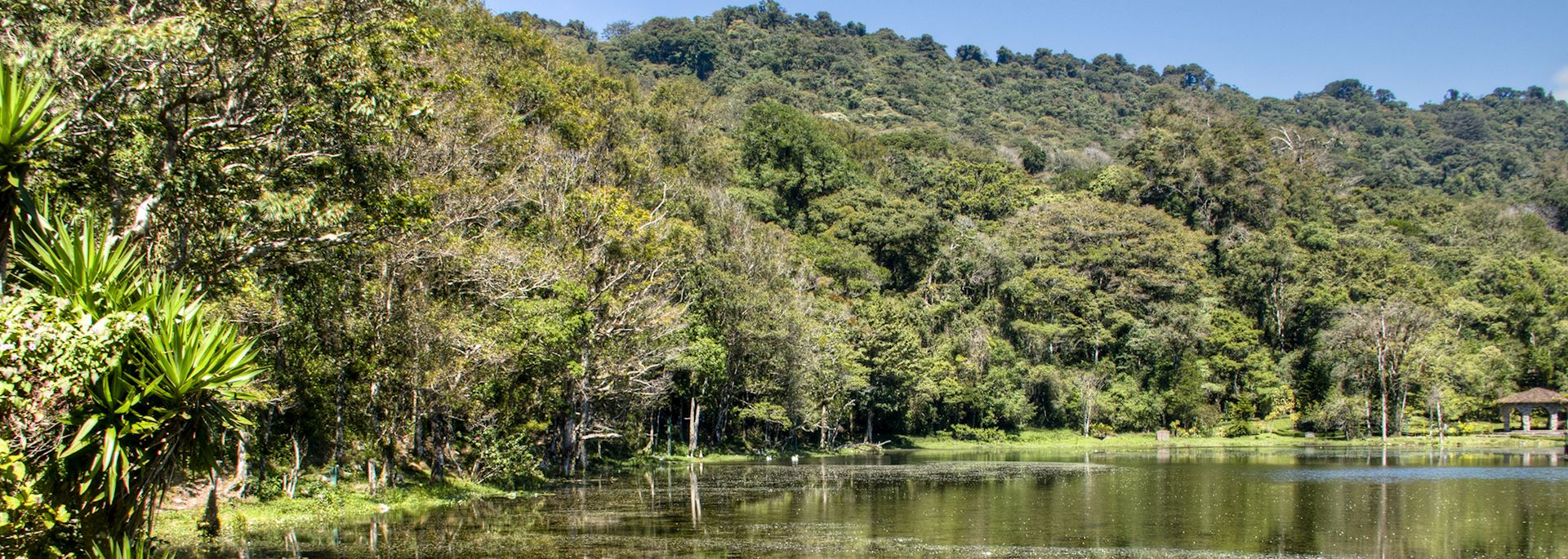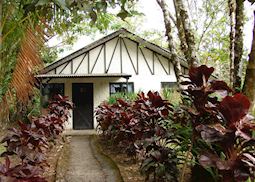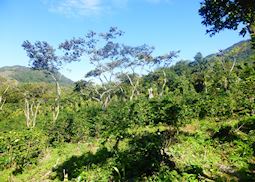Jump to:
Matagalpa is Nicaragua's fifth largest city and one of its most commercially active outside of Managua.
Matagalpa, along with nearby Jinotega, enjoys 'eternal spring' — all year spring-like weather, lying more than 700 metres above sea level with average temperatures ranging from 26°C to 28°C and relative humidity between 75% and 85%.
The surrounding area is lush and green full of undulating fields and mountainous forests, perfect for agriculture. It produces flowers, wood, corn, beans, fruits (oranges, grapefruits, bananas, plantains) and many kinds of vegetables such as broccoli, and cauliflower. It exports beef, cheese, coffee and cacao.
The temperate climate makes it perfect for growing excellent coffee and the area is becoming popular with ecotourists.
who's been there
-
01993 838 92501993 838 680
- Make an enquiry
Places near Matagalpa
- Managua 59 miles away
- Masaya Volcano National Park 67 miles away
- Granada 69 miles away
- León & Northern Nicaragua 73 miles away
- Ometepe Island 100 miles away
- San Juan del Sur 115 miles away
- Solentiname Islands 135 miles away
- Rio San Juan 164 miles away
- El Castillo 167 miles away
- The Corn Islands 201 miles away
Photos of Matagalpa
Accommodation choices for Matagalpa
We've selected a range of accommodation options for when you visit Matagalpa. Our choices usually come recommended for their character, facilities and service or location. Our specialists always aim to suggest properties that match your preferences.
-
![La Selva Negra, Matagalpa]() Responsible ChoiceWe've hand-selected a range of tours and stays across the world that go above and beyond to be a force for good by supporting local businesses, educating staff, challenging local norms, or promoting conservation and biodiversity efforts. Your Responsible Choice helps increase the positive impact of your trip.
Responsible ChoiceWe've hand-selected a range of tours and stays across the world that go above and beyond to be a force for good by supporting local businesses, educating staff, challenging local norms, or promoting conservation and biodiversity efforts. Your Responsible Choice helps increase the positive impact of your trip.La Selva Negra Mountain Resort and Coffee Estate
Matagalpa
Ideas for experiencing Matagalpa
Our specialists seek out authentic ways to get to know the places that could feature in your trip. These activities reflect some of the experiences they've most enjoyed while visiting Matagalpa, and which use the best local guides.
-
Matagalpa coffee tour ![Coffee plantation at Selva Negra]()
Matagalpa coffee tour
Matagalpa coffee tour
Learn about the production and processes involved in creating coffee, the most popular hot drink in the world. Visit Selva Negra, one of the finest coffee producers in Nicaragua, and learn about the plantation and the steps it has taken to support the local community.
View details









